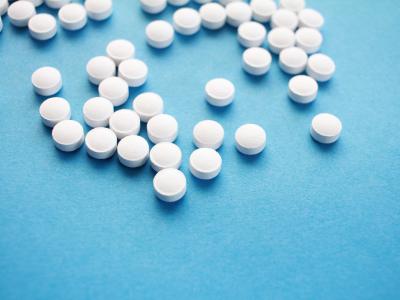Separating fact from fiction: repurposed drugs in cancer treatment

Mel Gibson may be a great actor, but when it comes to his recent podcast discussion about ivermectin and fenbendazole, suggesting these antiparasitic drugs cured stage IV cancer in some of his friends, it's important to be cautious. The media attention sparked by his statement as well as some recent seemingly scientific publications, making bold claims on the topic, have caused a surge in questions from patients about repurposed drugs. (*)
Patients want to know if these medications are safe to use and could enhance treatment outcomes—possibly extending their lives or even curing them. At the Anticancer Fund, we've been receiving these inquiries for years. As pioneers in drug repurposing for cancer research, we are frequently approached by people from around the world seeking reliable information. While we completely understand the curiosity of cancer patients, it is crucial to examine what science actually tells us.
What are repurposed drugs in cancer treatment?
Repurposed drugs are existing medications initially developed for other diseases but now being explored for potential anticancer properties. They might be used on their own or combined with standard therapies.
For instance, ivermectin and fenbendazole are both antiparasitic drugs:
- Ivermectin is prescribed to treat worm infections in humans.
- Fenbendazole is widely used in veterinary medicine.
Some early laboratory findings suggest these drugs could have anticancer effects, but does that mean they work in clinical practice? Let’s explore how drugs are evaluated for cancer treatment.
How researchers identify drugs for cancer repurposing
When researchers investigate non-cancer drugs for possible use in oncology, they follow a process:
- They start by looking for promising signals—like observations in large populations or findings from early-stage laboratory or computational studies—that suggest a drug might have anti-cancer properties.
- In a next step, extensive laboratory research is performed with the drug: various cancer cell lines (in vitro) and/or animal models (in vivo), as well as combinations of repurposed and/or approved cancer drugs are tested. The goal is to verify the anti-cancer potential, understand the mechanism of action, and define the best setting to move this research into humans: which disease, dose and treatment combination for instance.
- Finally, the signals and preclinical research need to be confirmed in patients – and this is the step where most drug development fails. For a drug to be approved for cancer treatment, high-quality clinical evidence must show that it provides clear benefits for cancer patients with an acceptable safety profile. The golden standard for such validation is through rigorous clinical trials.
Only through such high-quality clinical research can scientists determine:
- Which patients could benefit.
- The safest and most effective dose.
- The best mode of administration.
- Whether it should be combined with other therapies.
Without positive evidence, no credible treatment recommendations towards patients can be made.
What the science says about repurposed drugs for cancer
Despite the increasing interest in repurposed drugs, the scientific evidence supporting their use in cancer treatment remains very limited. In fact, most studies are still in the early stages and lack the robust data required to make clear treatment recommendations.
The same applies for ivermectin and fenbendazole. Although these drugs have shown potential to fight cancer cells in petri dishes and laboratory animals, rigorous clinical trials in humans are missing. Regardless of what viral podcasts and pseudoscientific articles claim, much more conclusive proof is needed before we can say whether these drugs are safe and effective as cancer treatment.
Only in very specific cases, repurposed drugs have been incorporated in oncology guidelines, for instance low-dose aspirin in resected colon cancer. However, such cases are uncommon and backed by strong clinical evidence. Unfortunately, many of the claims about repurposed drugs circulating are not supported by the same level of scientific validation, which can lead to false hope and potentially harmful decisions.
Why you should be cautious about unproven cancer treatments
At the Anticancer Fund, we understand that patients want to try everything they can to improve their outcomes and explore all available options.
But as public figures like Mel Gibson amplify discussions on repurposed drugs, it’s essential to focus on verified facts from trusted medical sources.
This is why we strongly encourage discussing any potential treatment with your oncologist before making decisions.
How we can help at the Anticancer Fund
At the Anticancer Fund, we want to separate fact from fiction and guide you in making informed decisions about your treatment.
If you’re unsure about repurposed drugs for cancer, our My Cancer Navigator service can help you:
- We can research and summarise the available evidence for a specific drug.
- We can review the scientific literature for known or potential interactions between a specific (repurposed) drug and a conventional therapy regimen.
However, we want to be completely transparent:
- We will never provide a list of repurposed drugs to take or specific dosage recommendations.
- We do not refer to doctors who prescribe unproven treatments.
Final thought: Stay informed, stay safe
The idea that repurposed drugs could cure cancer is compelling, but without solid clinical evidence, it remains speculative. Always consult your medical team before trying another therapy or adding something on top. If something sounds too good to be true, it probably is.
Stay curious but cautious—and if you need help evaluating the evidence, we’re here for you.
(*) Podcast The Joe Rogan Experience featuring Mel Gibson (Jan 2025), essay Cancer Care 2nd Edition by Paul Marik (Oct 2024), article Targeting the Mitochondrial-Stem Cell Connection in Cancer Treatment: A Hybrid Orthomolecular Protocol in Journal of Orthomolecular Medicine (Sep 2024).
